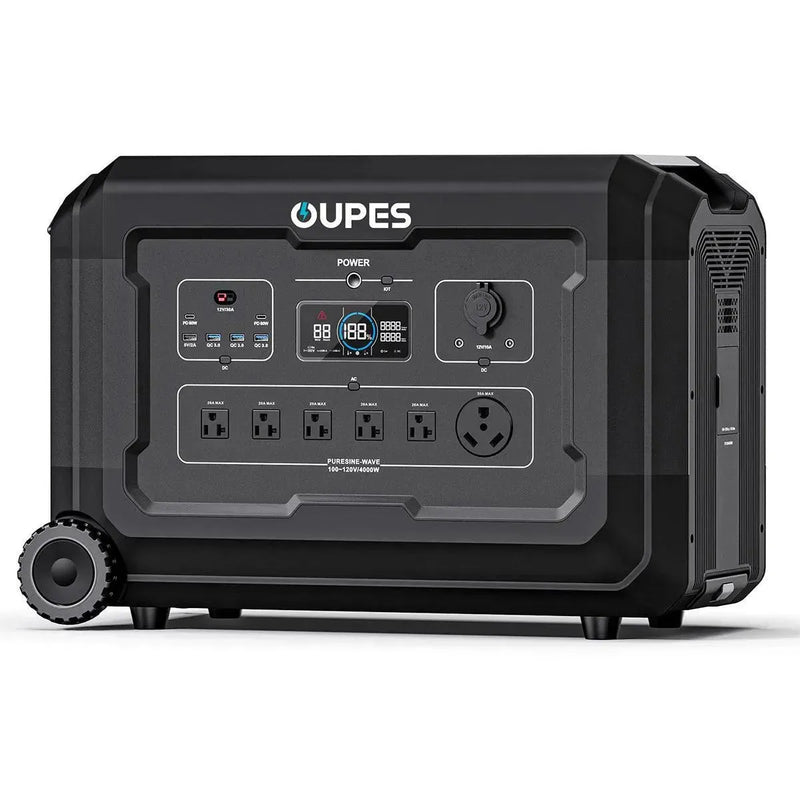
Solar energy has revolutionized the way we think about power. With panels installed on rooftops, capturing the sun’s abundant energy, many homeowners feel a newfound sense of energy independence. But does having solar panels mean you can entirely forgo a generator? Or is there still a critical role for backup power in a solar-powered home?
The answer isn’t as straightforward as one might think. While solar panels provide a renewable and cost-effective source of electricity, their reliability depends on numerous factors—sunlight availability, energy storage, and grid connectivity. In certain situations, a generator, particularly a solar-powered one, can become an indispensable part of a truly resilient energy system. Let’s explore why.
Understanding the Limitations of Solar Panels
Solar panels are a marvel of modern engineering, transforming sunlight into electricity with silent efficiency. However, their functionality is dictated by the environment—cloud cover, seasonal shifts, and even the angle of installation can impact energy production. While a well-designed system can generate enough electricity for daily use, there are moments when solar panels alone may fall short.
One of the most significant limitations of solar panels is their dependency on sunlight. During the night, they produce no power. On overcast days, their efficiency decreases. In regions with long winters, where daylight hours are scarce, this reduction in power generation becomes even more pronounced. Without a way to store excess energy, a solar-powered home can find itself in the dark.
Battery storage offers a partial solution, allowing homeowners to retain surplus power generated during the day for use at night. But battery systems can be expensive, and even high-capacity batteries have their limits. If consecutive days of low sunlight occur, stored energy can deplete, leaving homeowners vulnerable to outages. This is where a solar generator comes into play, bridging the gap between energy production and consistent power supply.
The Role of a Generator in a Solar-Powered Home
For those relying primarily on solar energy, a generator serves as a safety net. It ensures that when solar production is insufficient, there is a backup power source ready to keep essential appliances running. While traditional fuel-powered generators have long been used for this purpose, solar generators present a more sustainable and hassle-free alternative.
A solar generator operates by storing energy in a battery, which can be charged through solar panels or other power sources. Unlike gas-powered generators, they run silently, require no fuel, and produce zero emissions. This makes them ideal for homeowners who want to maintain their renewable energy commitment while still having reliable backup power.
During unexpected grid failures, a solar generator can supply critical energy to keep lights on, refrigeration running, and essential devices charged. This is especially crucial in emergency situations where power outages last for extended periods. Unlike solar panels, which only generate electricity when the sun is out, a solar generator provides stored energy whenever it is needed, day or night.
Solar Panels, Grid-Tied Systems, and Backup Power
Many solar-powered homes are connected to the electrical grid, allowing homeowners to feed excess energy back to utility companies in exchange for credits. This setup, known as net metering, enables a continuous power supply even when solar production is low. However, being tied to the grid doesn’t eliminate the need for a backup generator.
During power outages, most grid-tied solar systems automatically shut down for safety reasons. This means that even if the sun is shining, homeowners won’t have access to their solar power unless they have battery storage or a backup generator. Without an alternative power source, they remain at the mercy of utility companies to restore electricity.
By incorporating a solar generator into the energy mix, homeowners ensure a seamless transition to backup power when grid failures occur. This provides peace of mind, knowing that regardless of external circumstances, essential appliances will remain operational.
OUPES Solar Generators: A Smart Backup Solution
For those looking to enhance their energy resilience, OUPES solar generators offer a cutting-edge solution. Designed with advanced battery technology and rapid solar recharging capabilities, OUPES generators provide dependable power when it’s needed most.
One of the key benefits of OUPES solar generators is their versatility. Whether used as a primary power source for off-grid living or as an emergency backup for grid-connected homes, these generators ensure uninterrupted electricity. They are compact, portable, and user-friendly, making them an ideal choice for homeowners who want reliability without complexity.
Unlike conventional gas-powered generators, OUPES solar generators operate without noise, fumes, or ongoing fuel costs. This makes them not only an environmentally friendly option but also a cost-effective one in the long run. With multiple output ports, they can power everything from refrigerators and medical devices to communication tools and lighting, ensuring that daily life remains uninterrupted.
Final Thoughts: Do You Need a Generator If You Have Solar Panels?
While solar panels are a powerful source of renewable energy, they are not a standalone solution in every scenario. Their efficiency depends on sunlight availability, and without proper energy storage, they may leave homeowners vulnerable to power interruptions. A generator, particularly a solar-powered one, acts as a safeguard, ensuring that electricity remains available even when solar production is insufficient.
For those committed to sustainable living, integrating a solar generator into their energy system is a smart move. With a brand like OUPES, homeowners can achieve true energy independence, enjoying the benefits of solar power while maintaining a reliable backup solution for any situation.




























